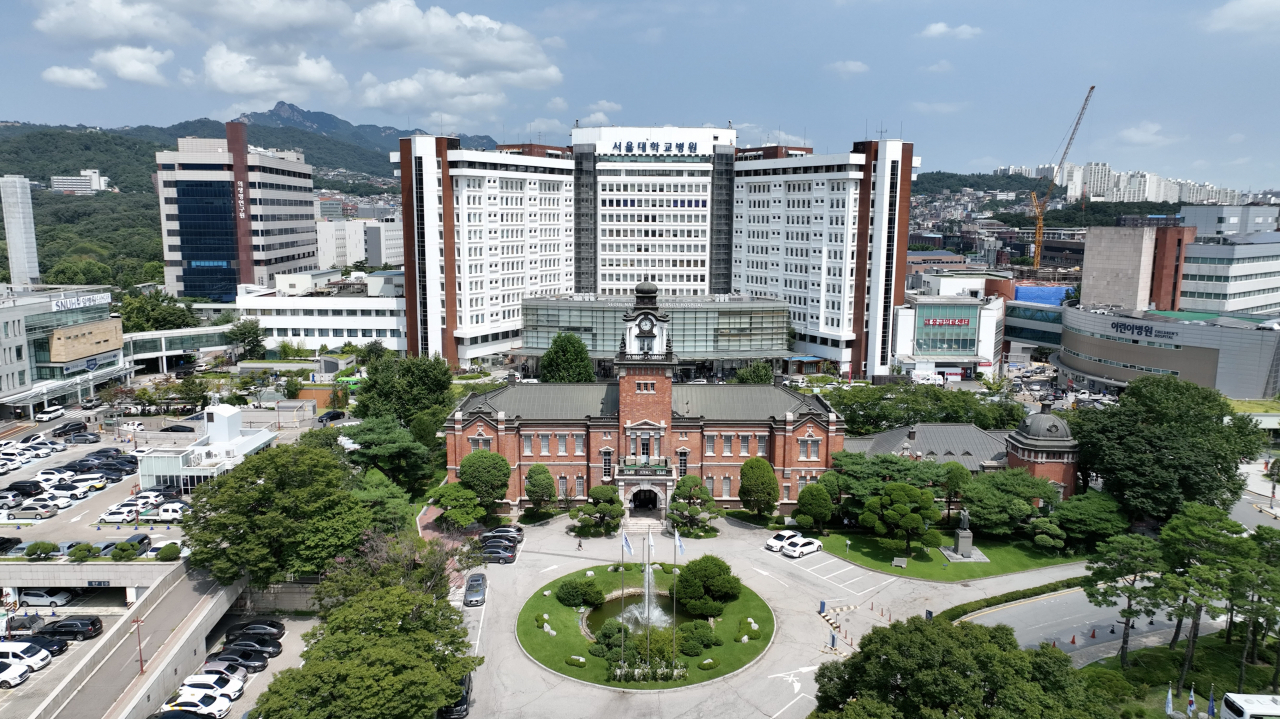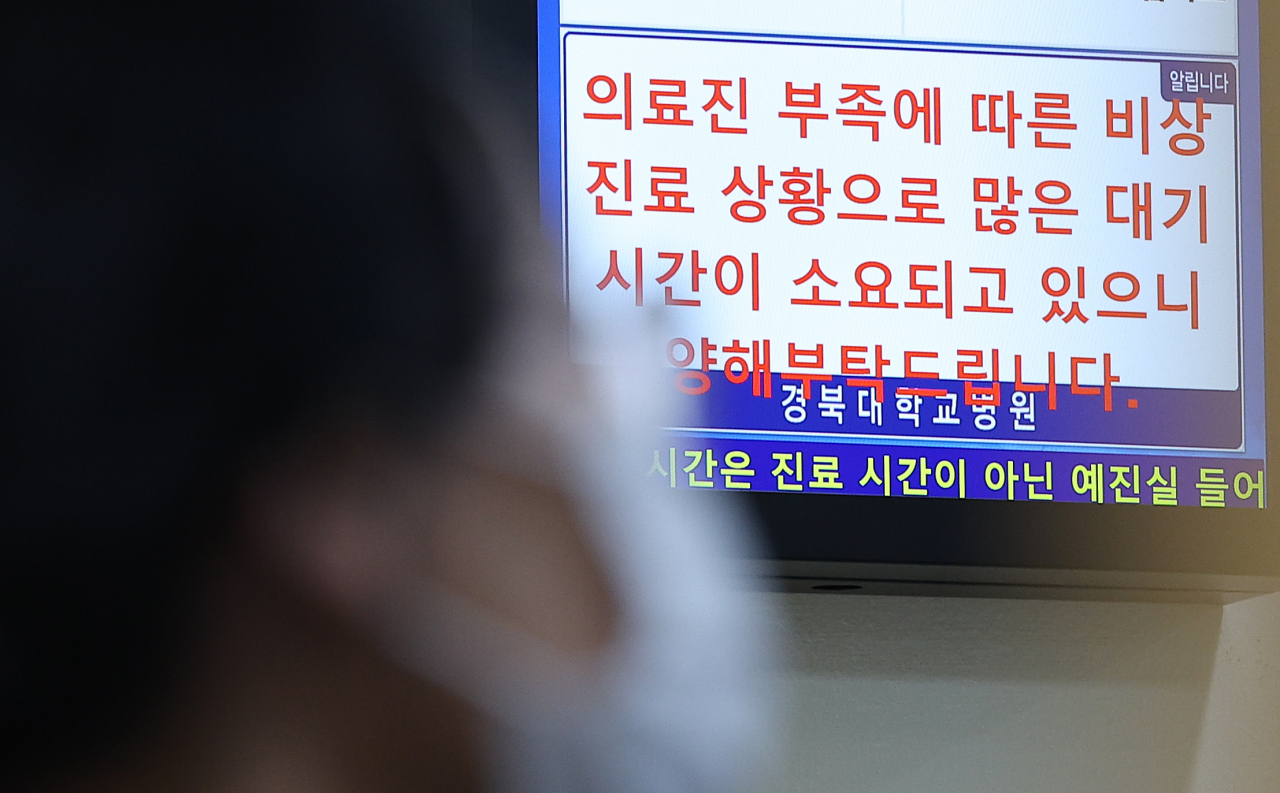(ANN/THE KOREA HERALD) – The Korean government has elevated its four-tier health care crisis level to the highest, “serious,” as junior doctors, who provide crucial care, have been striking for nearly three months. Medical professors are also resigning from their positions.
Amidst this crisis, the government recently announced plans to ease regulations for overseas-licensed doctors to practice in the country.
This move has sparked concern among local doctors, who argue that foreign-trained doctors might not meet local standards, potentially causing medical errors and undermining the esteemed medical system.
The announcement, made earlier this month, appears to be an effort to pressure doctors who left hospitals in protest of the state’s plan to expand medical school quotas.
Currently, Koreans who graduated from overseas medical schools need to pass a separate preliminary exam before they can take the state licensing exam that allows them a domestic doctor’s license.
The latest plan exempts doctors with foreign licenses from taking those exams, meaning they can be hired immediately at training hospitals, although they would not be allowed to open their own clinics.
Under the scheme, overseas-trained doctors will be allowed to legally provide medical services upon the approval of the health minister so that medical disasters do not harm the lives and health of the public, according to the government.

The Health Ministry explained that it sees the scheme as a solution for the health care system to continue functioning.
While the government believes doctors educated abroad could be a useful option to fill gaps in the workforce and free up local doctors to focus on more severe cases, a large portion of the distaste comes from the worry that training differences and language barriers place them in a less-than-optimal position in caring for patients.
The Korean Medical Association — the largest doctors’ group here with some 140,000 members — said the government’s plan to reduce the bottleneck in a medical crisis would only attract physicians with “low intellectual abilities.”
“(Koreans) with money but lack intellectual ability attended overseas medical schools, such as in Hungary, and only 30 per cent of them pass (Korea’s) state licensing exam. Would (people) be able to entrust their parents’ lives to those who are less qualified?” Lim Hyun-taek, the KMA’s chief, told reporters during a briefing.
Data revealed by doctor-turned-lawmaker Rep Shin Hyun-young of the main opposition Democratic Party of Korea in October last year showed that the pass rate for the state licensing exam has been around 33 per cent for the past 20 years.
The corresponding figure for Korean medical school graduates was 94.2 per cent for this year, according to the Korean Health Personnel Licensing Examination Institute.
Lim stressed that the details of the plan showed a lack of understanding of patient care and the medical field.

Sung Hye-young, the KMA’s spokesperson, echoed that the scheme would only bring extreme uncertainty to the country’s high-quality medical system and its standards and practices.
“It’s highly inappropriate for the government to unilaterally introduce an unverified scheme without having proper consultations with the medical community and reflecting their voices, such as how many doctors it would allow (to provide medicine) in which circumstances,” Sung told The Korea Herald.
“Leaving patients and people with choices that may not be in their best interests could harm their lives and health. The people’s health should be a priority, not rolling out an unreasonable plan that sounds rosy. “
Outcome not intended
Lee Ju-yul, a professor at the Department of Health Administration at Namseoul University, pointed out that the scheme would allow foreign doctors to experience more advanced equipment and benefit from high-quality professional development, rather than helping people’s lives here.
Lee said the chances of “elite doctors” arriving to fill in the medical personnel are low.
“Koreans prefer hospitals with better facilities, and they have high standards and expectations of doctors, so they want to be treated by noble doctors,” Lee told The Korea Herald.
“But will graduates or doctors from one of the best medical schools in the world, such as the John Hopkins University, come to Korea and perform medicine under the chaperone of a local senior doctor to work for a good few months during a medical crisis to see Korean patients? The chances are meagre.”
“Instead, those from Vietnam or the Philippines, for example, would come (to Korea) to gain experience. That doesn’t benefit Koreans,” Lee claimed.
Doctors also claim that the public does not welcome the plan either, referring an online survey conducted by the Anti-Corruption and Civil Rights Commission in which only 65 out of 1,675 were in favour of admitting foreign doctors.
“Is the public a guinea pig placed on a test bed as an experimental subject? How could the government gamble with the lives of its people? Who will be responsible if something goes wrong? “ one comment read.
Amid concerns about the performance of foreign doctors, Prime Minister Han Duck-soo said that the government would implement measures to prevent unverified foreign medical doctors from practicing medicine.
Second Vice Health Minister Park Min-soo also said during a recent briefing that the scheme aims to prepare for potential future emergencies and that the government doesn’t plan to bring in foreign-trained doctors anytime soon. But Park underscored that the scheme would be able to plug the service gap and meet public demand in medical crises.
The ministry also explained that foreign-trained doctors would be allowed to provide medical services “deemed necessary” by the health minister during a crisis. It declined to comment on the scope of the practices they could perform when asked for further details.
Language, cultural barriers?
Apart from the quality of care, professor Lee pointed out that language barriers can pose significant challenges to physicians and patients, leading to poorer outcomes.
“A patient-doctor consultation requires communication, but will patients thoroughly convey their symptoms in a foreign language? Also, foreign doctors might not be familiar with the medical terminology used locally. Some say AI could play that role, but will it really be effective?” Lee explained.
Lawmaker-elect Lee Joo-young of the minor conservative New Reform Party, a former pediatric emergency medicine professor, also said in a radio interview with CBS that a lack of knowledge regarding Korea’s culture and clinical system could undermine the local health care infrastructure.


